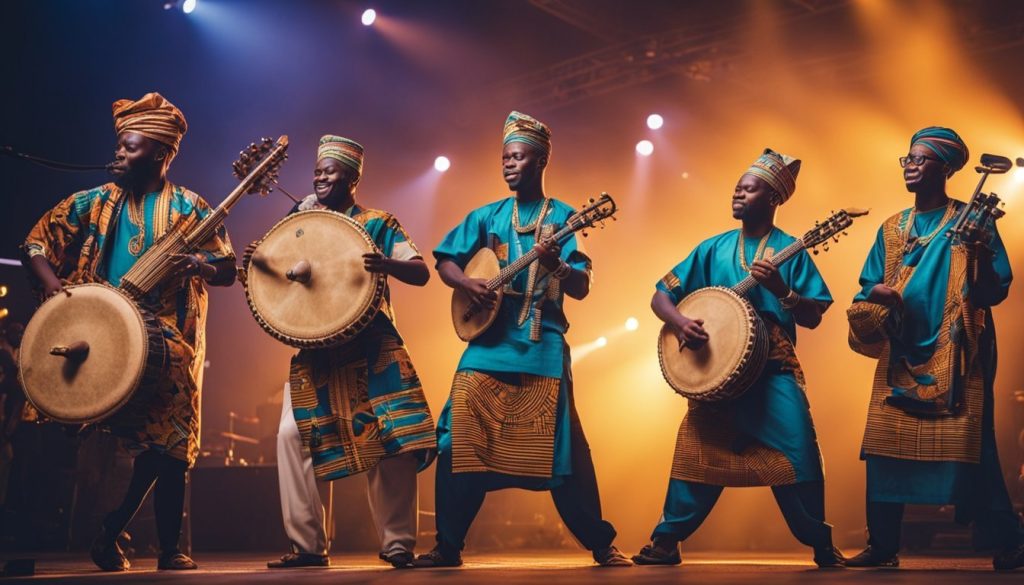We all love music. The sound alone can be a source of joy, therapy, or even a deep spiritual connection for many of us. Sound itself is a powerful force, capable of evoking emotions, inspiring action, and creating memories. Music, whether gospel or secular, serves as a universal source of entertainment. However, beyond just the rhythm and melody, let us explore the origins of entertainment in Nigeria—a legacy worth celebrating and preserving.
The Power of Music Music transcends borders, languages, and cultures. It is a universal language that unites people and serves as a medium for storytelling, celebration, and reflection. In Nigeria, music is more than entertainment; it is an essential aspect of the people’s lives, influencing traditions, religion, and even politics.
The Origins of Entertainment in Nigeria
Entertainment in Nigeria has roots in its diverse ethnic cultures, which boast rich histories of traditional music, dance, drama, and festivals. Each ethnic group brought its unique art forms, contributing to the colorful tapestry of Nigerian entertainment.
1. Traditional Music:
- The Yoruba people are known for their talking drums (*gangan*), which convey messages through rhythm and tone.
- The Igbo celebrate with *udu* (a clay pot drum) and *ogene* (a metal gong) during festivals and ceremonies.
- The Hausa-Fulani, renowned for their *kakaki* (a long trumpet) and *kalangu* (a talking drum), use music to celebrate royal and religious events.
2. Drama and Folklore: Entertainment in pre-colonial Nigeria also included storytelling, theatrical performances, and masquerades that blended music, dance, and drama. These cultural expressions served not just to entertain but to educate and preserve history.
3. Colonial Influence: The arrival of colonial powers in Nigeria introduced Western forms of entertainment, such as highlife music, which fused traditional African rhythms with Western instruments. This gave rise to legendary musicians like Bobby Benson and Victor Olaiya.
4. The Nollywood Era: Entertainment in Nigeria expanded significantly with the rise of Nollywood in the 1990s. Today, Nollywood is the second-largest film industry in the world, showcasing Nigerian stories and culture to global audiences.
The Evolution of Music in Nigeria
The Nigerian music industry has grown exponentially, blending traditional sounds with modern genres. Afrobeat, pioneered by Fela Anikulapo Kuti, remains one of Nigeria’s most significant contributions to global music. Today, artists like Burna Boy, Wizkid, Davido, and Tiwa Savage have taken Afrobeat and Afro-pop to international stages. Gospel music has also flourished, with artists like Sinach and Nathaniel Bassey inspiring millions.
Why Music and Entertainment Matter
1. Cultural Identity: Music and entertainment preserve Nigeria’s diverse cultural heritage and ensure it is passed on to future generations.
2. Economic Growth: The entertainment industry contributes significantly to Nigeria’s GDP, creating jobs and boosting tourism.
3. Global Recognition: Nigerian music and films have put the country on the global map, earning awards and recognition worldwide.
4. Emotional Connection: Music and entertainment provide solace, joy, and inspiration, uniting people across different backgrounds.
Looking Ahead
The future of entertainment in Nigeria is bright, with technological advancements and global collaborations opening new opportunities for creativity. Streaming platforms, social media, and digital tools have democratized the industry, allowing even grassroots talents to showcase their art to the world.
Music and entertainment are not just sources of joy; they are powerful tools for cultural preservation, economic development, and global connection. In Nigeria, these art forms have evolved from traditional roots to global phenomena, reflecting the resilience and creativity of the Nigerian people. Let us celebrate this rich heritage, embrace its modern expressions, and remember that music is not just a sound—it is a legacy.

